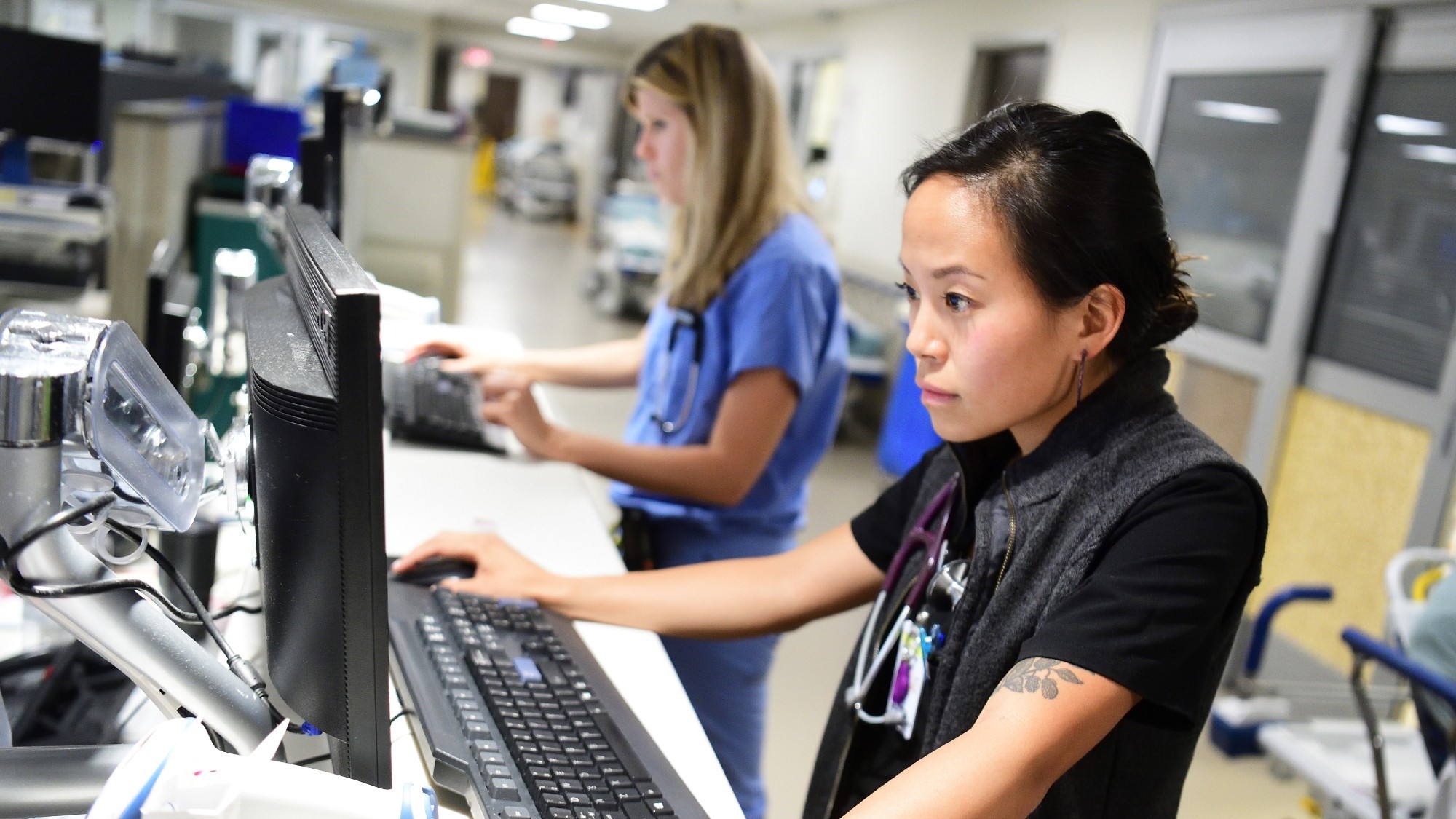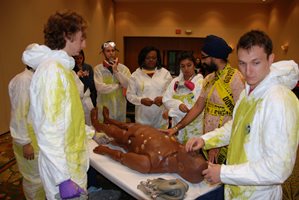Didactics are a key component of the Emergency Medicine Resident Program. Emory’s program focuses on learner-centered education and adult learning theory. Practically this translates into shorter lectures and active engaged learning opportunities. At Emory, we have over 100 Emergency Medicine faculty. Our faculty have a large variety of educational niches and interests. It is a great opportunity for learning and therefore we strive to have over 80% of our lectures delivered by faculty.
Our curriculum starts with the basics including becoming certified in ACLS, ATLS, and PALS. We also have days throughout the year dedicated to hands-on learning opportunities including the airway course, cadaver lab, palliative care OSCE, mock oral boards, and monthly simulation sessions.
Weekly conferences are four hours and arranged in an interleaved curriculum format. In the past conferences were arranged by blocks (October is cardiology month etc). In order to stimulate interest and encourage engagement, we have instituted an interleaved curriculum. This is where one subject is covered each day. There have been shown many benefits of an interleaved curriculum but perhaps most importantly this has been shown to improve long term retention over the traditional block curriculum.
Each month we set aside one week for class-specific training. Each class will break off into class-specific groups to undergo didactics, simulation and small group learning that is focused on the educational needs of the specific class. So, for example, while the second-year class is brushing up on critical care skills the third-year class is reviewing job interview skills and contract management. This dedication to class-specific education enhances our ability to target our learners.
We also support asynchronous learning experiences. Adults learn differently and there is a host of educational experiences that occur outside of the classroom. By empowering our residents to use these sources (conferences, online modules, workshops, US image review, Journal club, etc) we encourage our residents to get credit for the learning that they are doing on their own.



